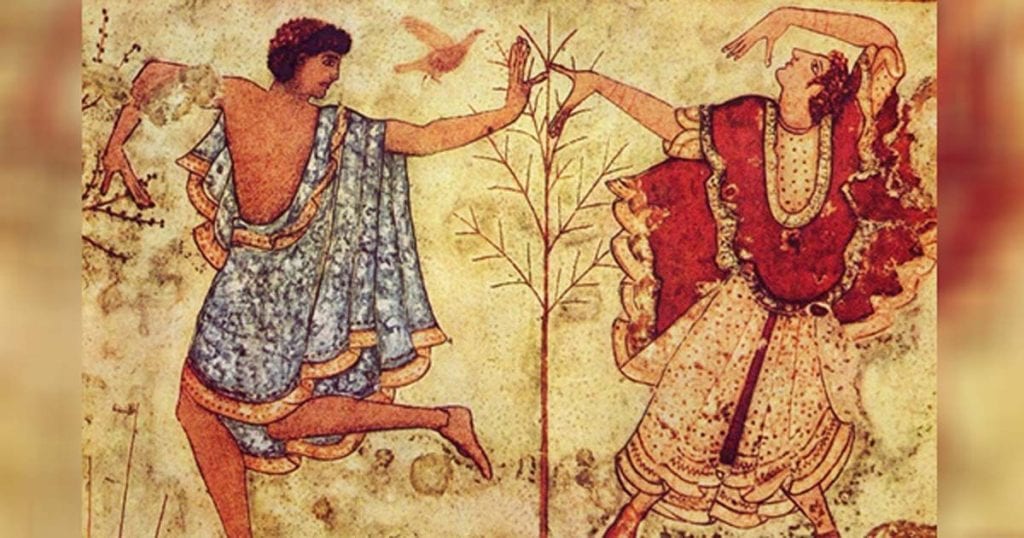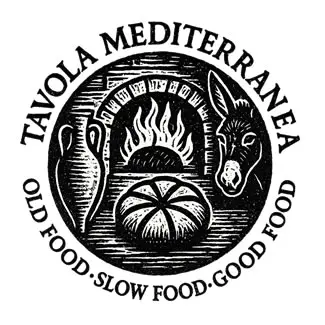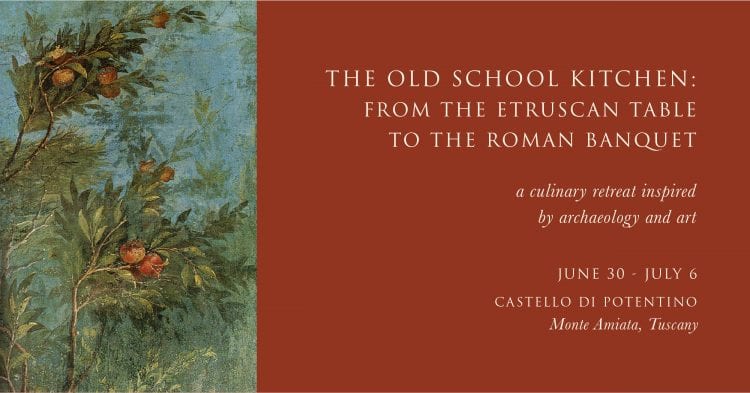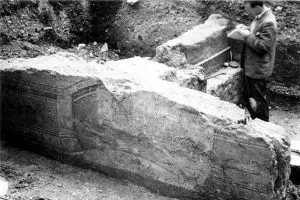A Culinary Retreat Exploring Ancient Etruscan and Roman Food Culture In The Heart of Tuscany
Join food archaeologist, Farrell Monaco, and visual story-teller, Saghar Setareh, for a 5-day live-in edible archaeology master class at a palatial medieval castle hidden in a valley in the Tuscan countryside as they explore the food history of Etruria and Rome from 800 BC to the Imperial Roman Era (AD 476). June 30 to July 6, 2019 – Monte Amiata (Tuscany), Italy.
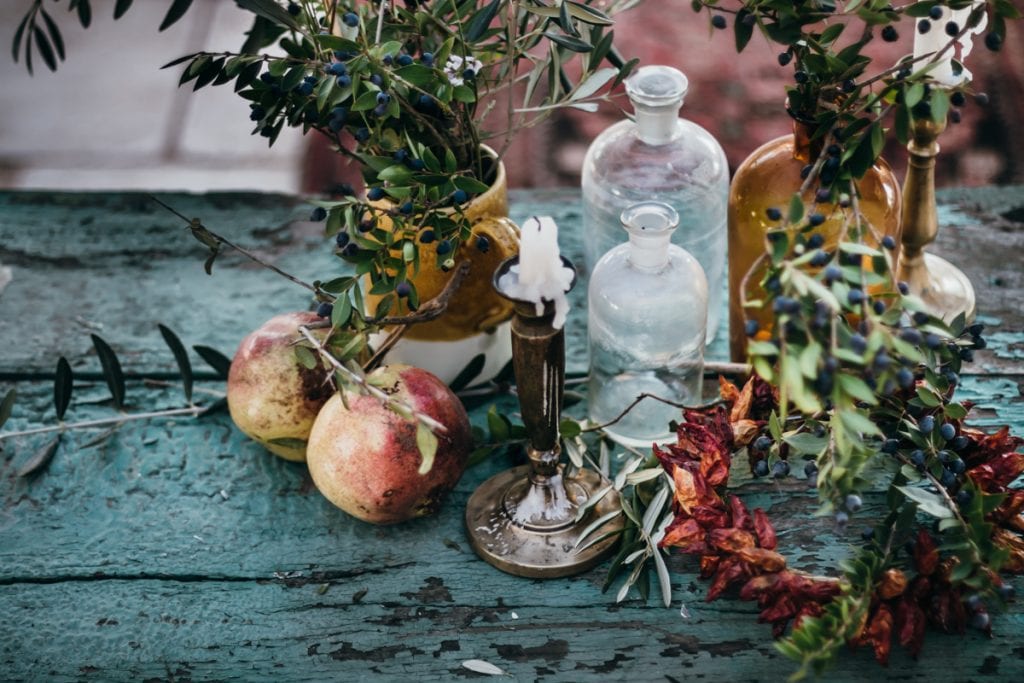
The master class will be comprised of 10 sessions held at the iconic Castello di Potentino, a restored medieval castle, that is situated in the heart of an ancient Etruscan valley in Tuscany, Italy. Originally a medieval castle built over an Etruscan settlement, the towering castle boasts three kitchens, two dining rooms, 11 large guest rooms, a pool, an olive grove, a wine cellar, and a vineyard that produces award winning wines. In the surrounding area are Etruscan archaeological remains that take us back 2,500 years in time to a place that is pre-Roman but that is key to the development of Roman food culture and the Roman civilization itself.
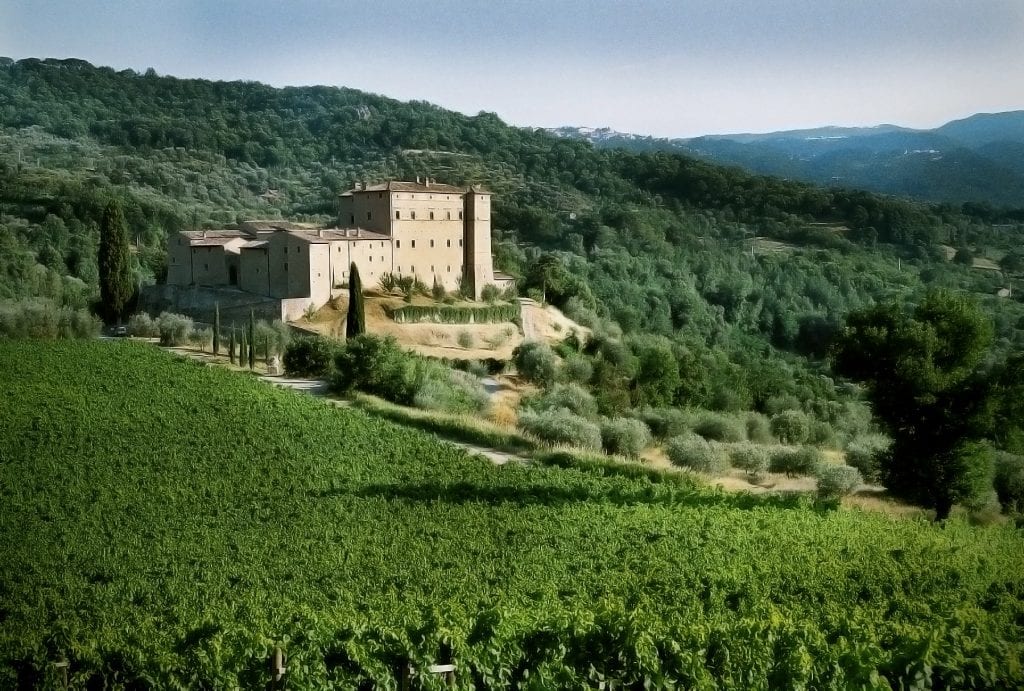
Your hosts pride themselves in providing a culinary experience that is authentic and based on legitimate historical data. Daily workshops will begin with a lecture in the medieval chapel adjacent to the castle followed by hands-on cooking, the use of ancient food preparation technologies, ancient meal preparation and bread-making lessons, the use of ancient herbs and spices, food-styling workshops, food photography lessons, and a session on staging Roman food frescoes for the camera. Lessons and recipes will be compiled using authentic sources and peer-reviewed research from the Etruscan, Greek and Roman archaeological, written and pictorial records. Participants will also enjoy a foraging trip into the countryside with a local resident who will teach us how to identify and prepare edible wild herbs and fungi that are indigenous to the valley and have been used for culinary purposes for millenia.
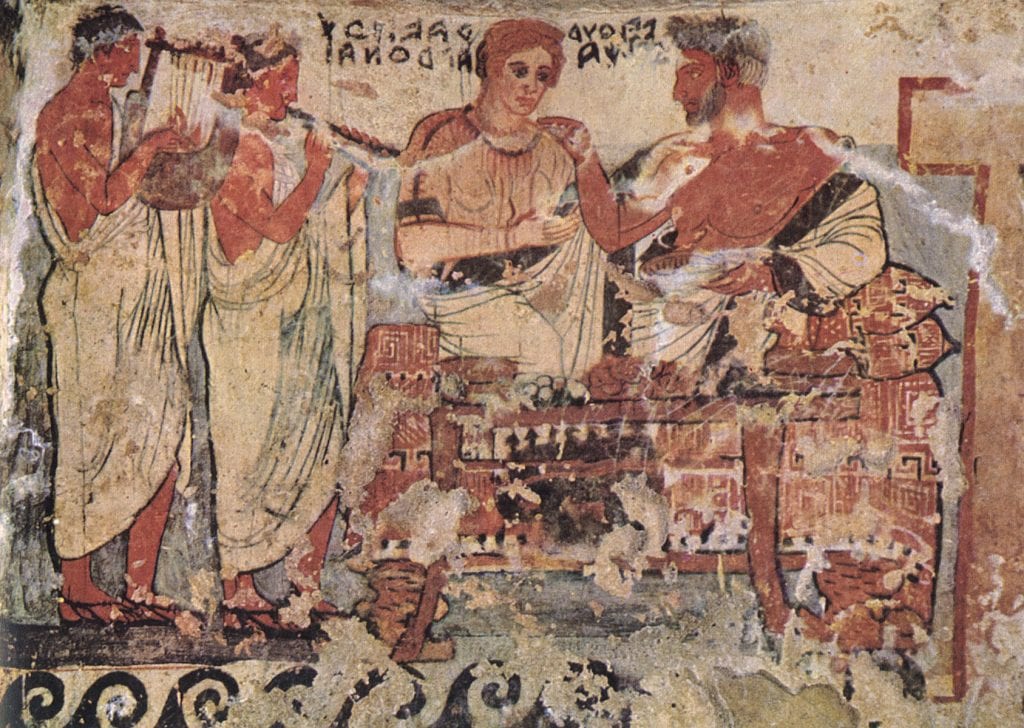
About your hosts:

Farrell Monaco is an archaeologist and food-writer whose research centres on foodways, food preparation, and food-related ceramics in the Roman Mediterranean. Farrell is well known for her experimental archaeology projects where she painstakingly recreates Roman recipes using instruction, ingredients, and technologies sourced from the archaeological, written and pictorial records. Her blog, Tavola Mediterranea, was nominated for a Saveur Blog Award (2018) and her work has been featured on Atlas Obscura, Radio New Zealand, Made in Pompei and the BBC. Farrell’s current research is centred ancient Roman bakeries and breads. She is a member of EXARC, the Archaeological Institute of America, and she sits on the media relations committee of the Society for American Archeology. Web | Instagram | Twitter

Saghar Setareh is an Iranian food photographer and writer based in Rome, where she discovered her love for the culinary arts of all forms. Her blog Lab Noon, which was nominated for Saveur Blog Awards (2015 and 2017) and Corriere della Sera Cucina Blog Awards (2017 and 2018), celebrates Persian and Italian recipes. She also collaborates with restaurants, chefs and food brands regarding their digital communication and food photography and teaches cooking, styling and photography workshops. Web | Instagram | Twitter
About the Venue:
Castello di Potentino is an ancient castle built on an Etruscan site. It lies in a secret valley in one of the last undiscovered corners of Tuscany – Monte Amiata. The medieval building is surrounded by unspoilt countryside, dotted with the vines and the ancient olive trees used for the estate’s small production of high quality wine, grappa and olive oil. Agriculture and viticulture are about growing and living, so eating and drinking well are an important element in the Potentino ethos which is concerned with the sustainability of how we inhabit a place and relate to it physically and mentally.
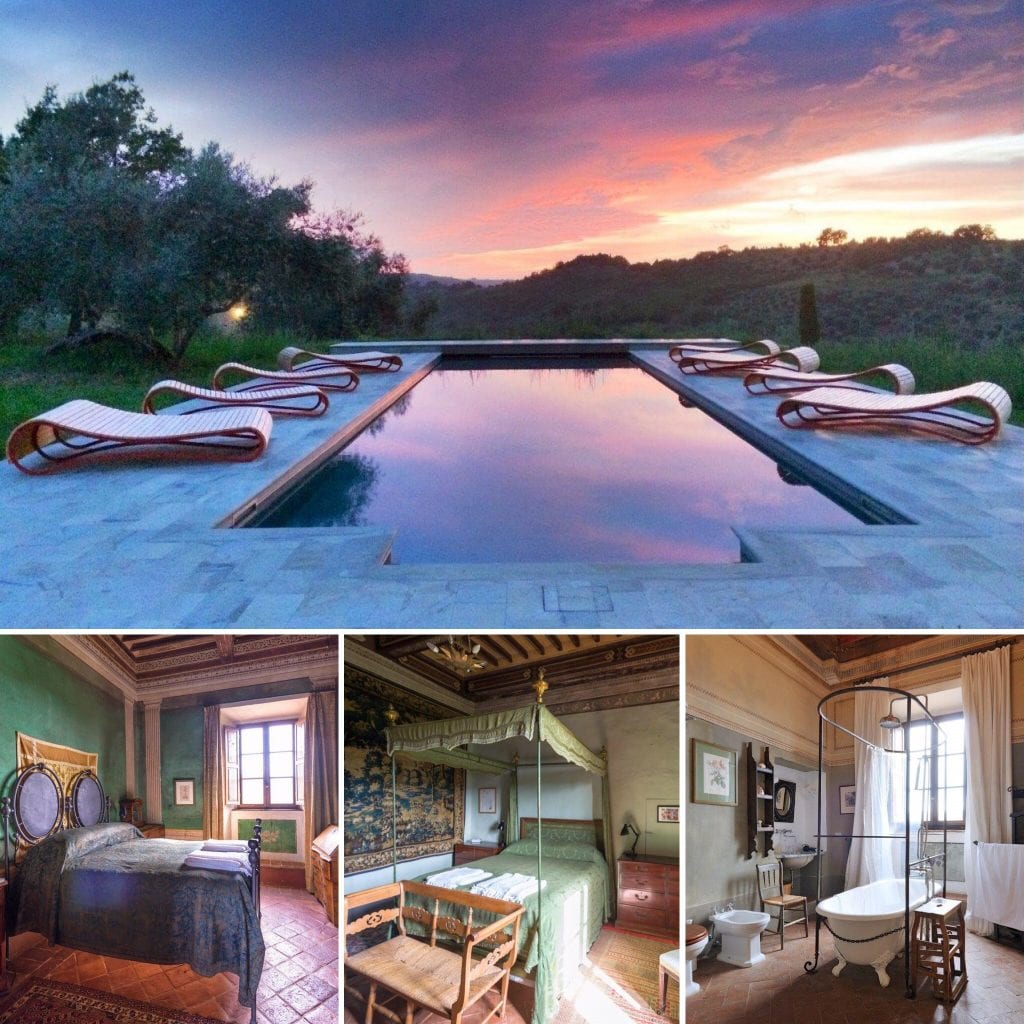
Registration fee:
Registration fees range from €2280 to €3,330 per person based on accommodations. Daily non-residential rate: €280.
Accommodation inquiries can be directed to: [email protected]

Included in the price:
- Six nights’ accommodation at the palatial Castello di Potentino. Available accommodation is in double and triple occupancy rooms suited for singles, couples, friends, or family members. Each room has its own en-suite bathroom or a dedicated private bathroom with shower or bath.

- All meals, non-alcoholic refreshments, and snacks.
- All excursions, including foraging and a nature and archaeology hike through the valley.
- Five days of lectures, workshops, and cooking that will cover Etruscan and Roman food archaeology, agriculture, foodstuffs, food imagery, and food photography and styling.
- Group transfer from/to central Rome at the beginning and end of the retreat.
- Workbook and reference materials.
- Potentino wine-tasting.
- A complimentary tote-bag with local organic products and souvenir kitchen implements.
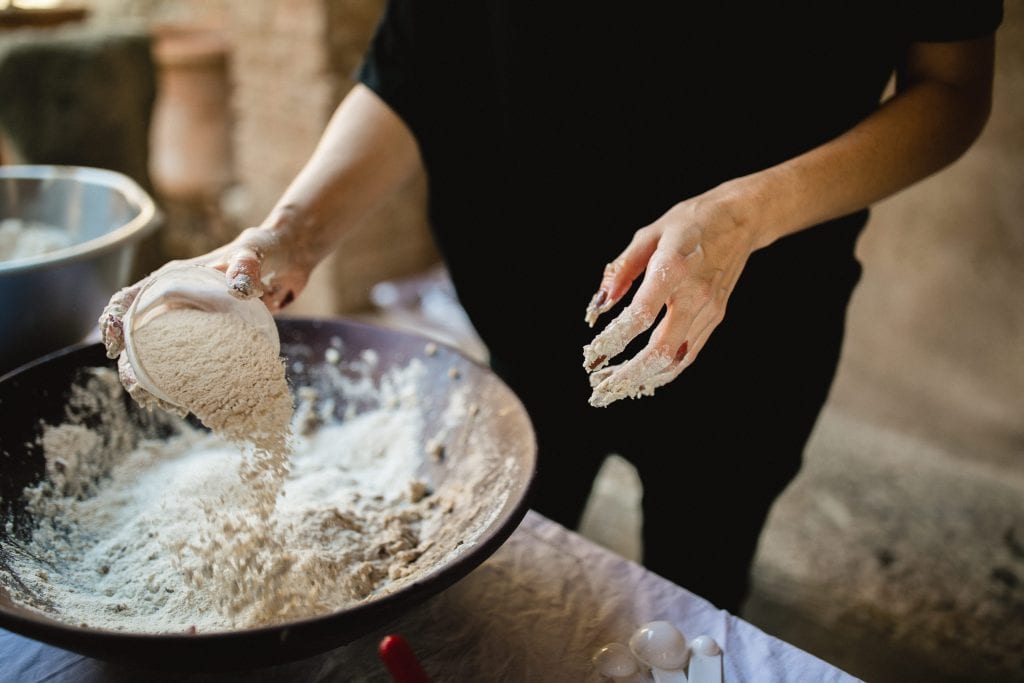
Not included:
- Flights and airport transfers.
- Medical and Travel Insurance.
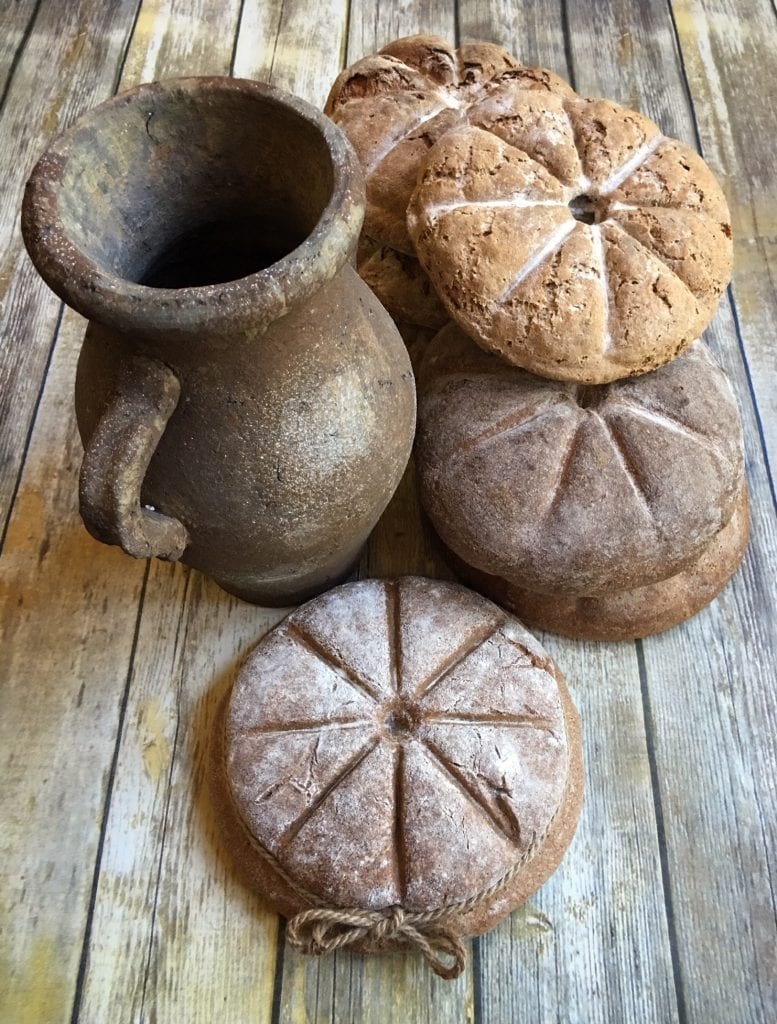
For payment and booking:
Registration requests can be directed to: [email protected]
A deposit of 50% is required to register for the retreat with the final 50% payment due by 30 April, 2019.
Register soon as space is limited!
Unless the event is cancelled on our end, due to the involved logistics & upfront costs, we can’t offer any cancellations or refunds.
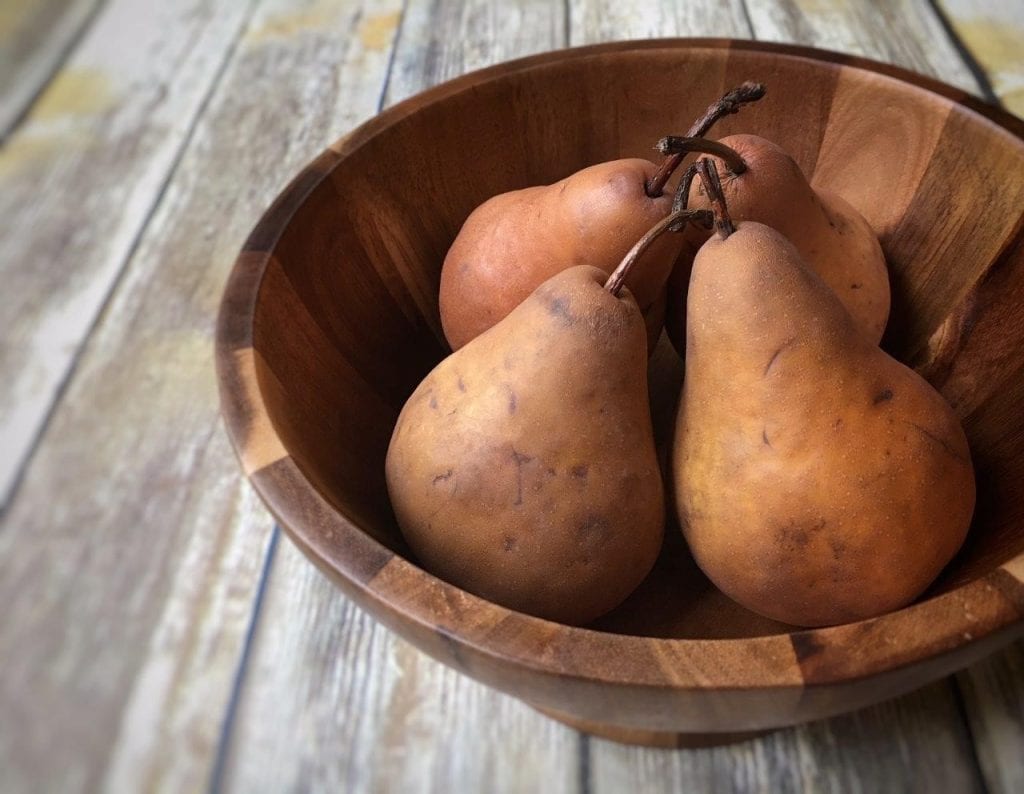

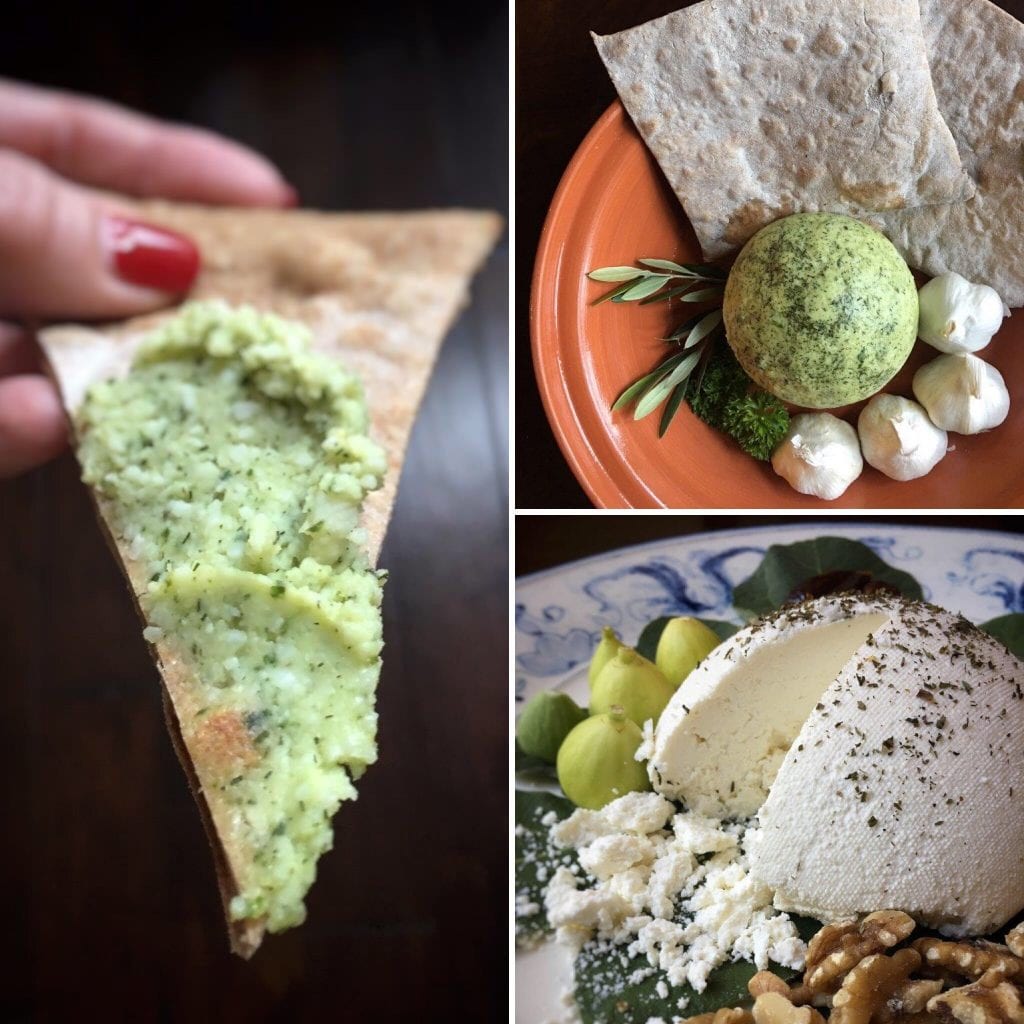
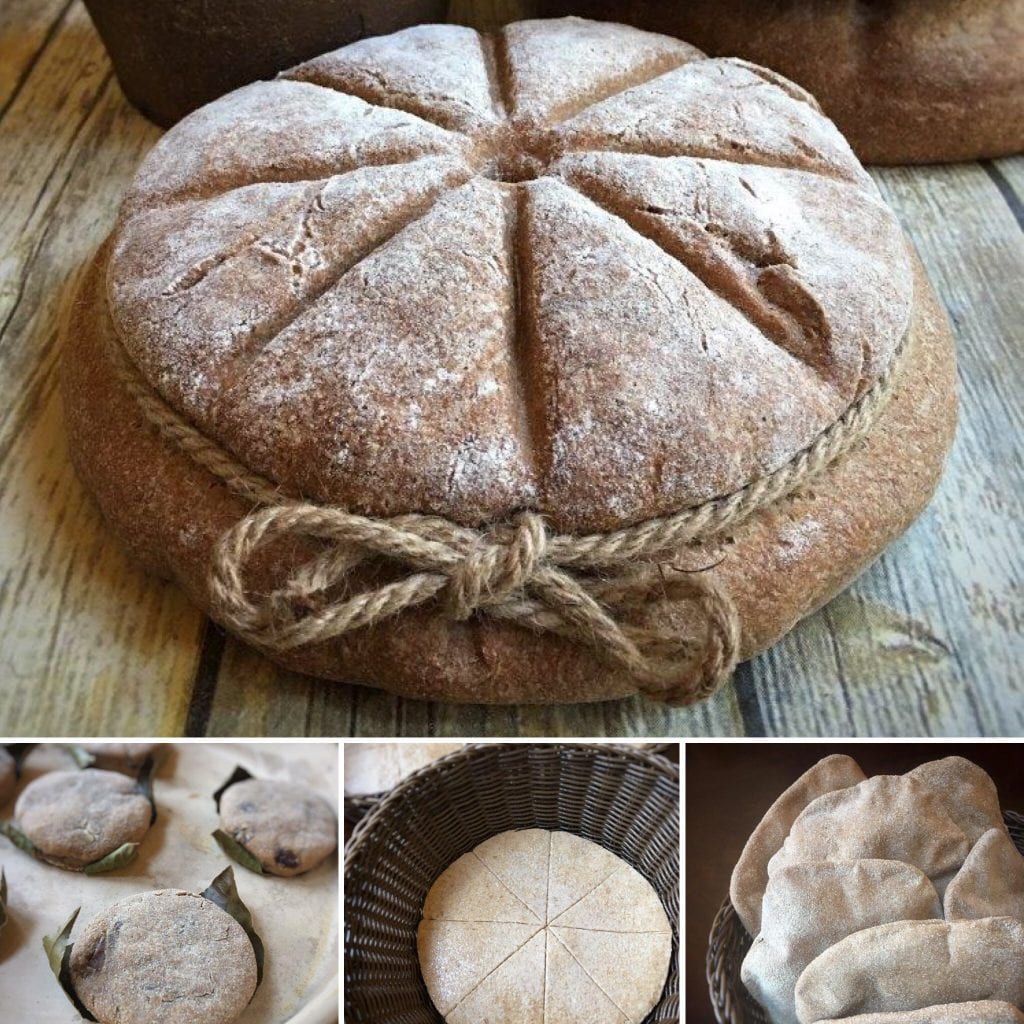
See you in Tuscany… and keep cooking it old school!
